#wars of religion
Text
it’s actually a miracle that no one has ever written a French Wars of Religion jegulus au fic.
hear me out, hear me out;
It’s the 1500’s. The French monarchy is desperately trying to keep themselves and the Catholic Church superior to the Protestant faith, specifically the Huguenots. King Henry II of France (Orion) dies unexpectedly, leaving the throne to an eleven year old Henry III (Regulus), after the death of his brother. Too young to take the throne, Catherine de Medici (Walburga) takes over the throne and commits a LOT of violent crimes. The other brother, the Duke of Aleçnon (Sirius) abandons the whole monarchy and joins a group of Protestant Rebels called The Malcontents (tell me that isn’t the closest thing to Marauders you have EVER HEARD). Part of this group is Henry of Navarre (James) a protestant aristocrat attempting to take the throne and promote religious freedom. They call him the Good King Henry (something that SCREAMS James Potter).
#ap european history made me want to write fanfiction#marauders headcanon#marauders#regulus black#james potter#sirius black#wolfstar#jegulus#jegulus au#french aristocracy#wars of religion#ap euro
131 notes
·
View notes
Text

I like that whoever made this map and uploaded it to (english language) wikipedia felt the need to translate "england" but not anything else
#monolingual anglophones cannot comprehend angleterre but do know début de la persécution 1523 premiére église 1530 and so on#btw to be clear I can read the blocks of text because I do speak french. your average non french speaker though...#16th century#wars of religion#french history#jory.txt
28 notes
·
View notes
Text
Claude de Valois, Duchess of Lorraine
Claude of France, Duchess of Lorraine by Francois Clouet
With Claude de Valois, we have a unique example of a happy aristocratic marriage. Having grown up together at the French court, the couple knew each other and were compatible. A favorite of her mother, Queen Catherine de’Medici, the many years of childbirth took a harsh toll on her body.
Claude was born at the palace of Fontainebleau on…

View On WordPress
#Catherine de’Medici#Charles IX#Claude of France#Duchess of Lorraine#French history#Henri II#Henri III#Huguenots#King of France#Queen of France#Reformation#Renaissance#St. Bartholomew’s Day Massacre#Wars of Religion
2 notes
·
View notes
Photo

Odet de Coligny (1517-1571). Attributed to François Clouet.
He was a French aristocrat, cardinal, Bishop-elect of Beauvais, Peer of France, and member of the French Royal Council. From 1534 he was usually referred to as the Cardinal of Châtillon.
#Maison de Châtillon#royaume de france#franch aristocracy#odet de coligny#maison de châtillon coligny#wars of religion#françois clouet
15 notes
·
View notes
Text
Eléonore de Roye
Eléonore de Roye, (Princesse de Condé, 1535-1564)
Huguenot activist, skilled political negotiator, nursed the sick and wounded during the siege of Orleans

Eléonore de Roye was one of the Huguenot noblewomen who contributed to the establishment of Calvinism in France. Daughter of Charles, count de Roye, and Madeleine de Mailly, and wife of Louis de Bourbon, prince de Condé, she was related to prominent Catholics (Anne de Montmorency) and Huguenots (Antoine de Bourbon, Jeanne d'Albret, the Colignys) and used her network well. Eléonore's influence was particularly important when Condé was imprisoned, first as a suspect in the Conspiracy of Amboise in 1560 (Condé was accused, with other Protestant sympathizers, of plotting to kill Francis II) and subsequently in 1562-1563 after the Battle of Dreux during the first Religious War. In each case, Eléonore corresponded at length with Catherine de Médicis and rallied Condé's supporters, including Elizabeth I. In each case, Condé was freed. Catherine's and Eléonore's negotiations after the Battle of Dreux, through letters and when they met within earshot of the hostilities, led to an exchang eof prisoners (Condé for Anne de Montmorency) and the Peace of Amboise.
Considered a model wife and mother, Eléonore bore eight children, nursed the sick and wounded during the siege of Orléans, travelled frequently to be with her husband, and remained faithful even when Condé's extramarital indiscretions inspired a stern letter from Calvin and Bèze (September 1563). Eléonore's death on 23 July 1564, surrounded by her children, was recorded by a woman companion for an English friend as an example for young women in both countries.
Jane Couchman, in Encyclopedia of Women in the Renaissance
#xvi#encyclopedia of women in the renaissance#éléonore de roye#house of roye#house of bourbon condé#wars of religion#louis i de bourbon condé#françois ii#catherine de medicis#anne de montmorency
6 notes
·
View notes
Text
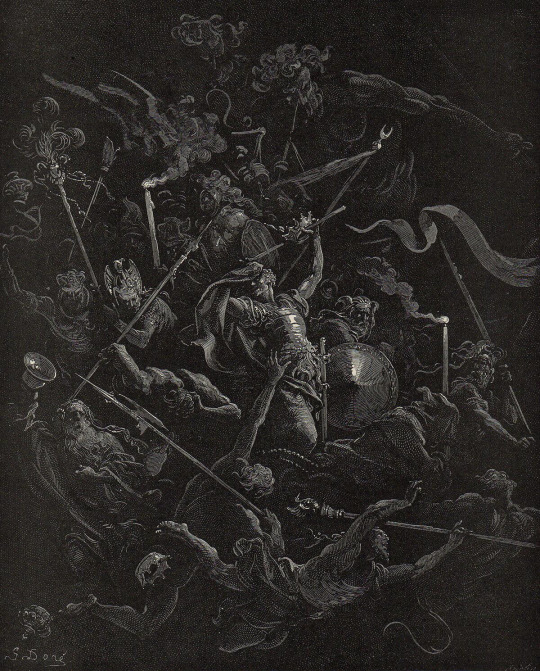
Chaos watches as the Rebel Angels are thrown into Hell (Milton's Paradise Lost)
by Gustave Doré
#gustave doré#art#paradise lost#john milton#chaos#fallen angel#fallen angels#war#battle#heaven#paradise#hell#lucifer#satan#angel#angels#demons#christianity#christian#religion#religious art#crown#sceptre#fall#fallen#rebellion#armour#shield#bible#biblical
1K notes
·
View notes
Text
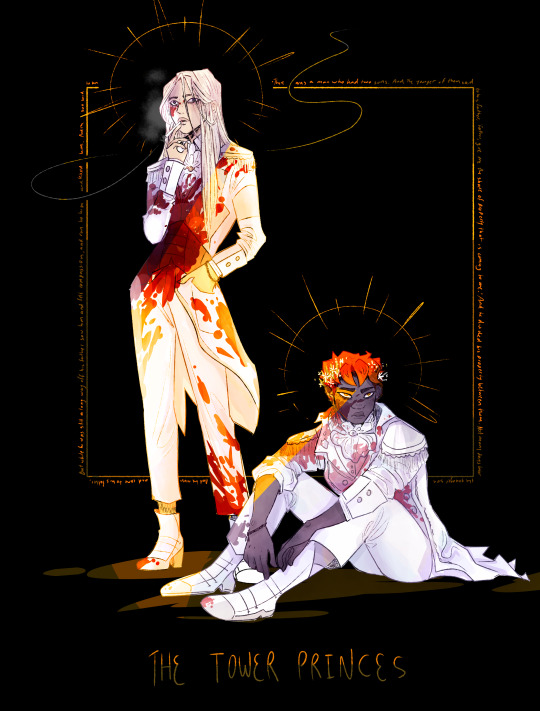

two b-list sons of God and a second-rate resurrection
#tlt#my art#tower princes here pictured shortly after having chopped up a bunch of devil-infested civilians at antioch and burning the bits#which is a thing they did! crazy.#like...between htn and ntn ianthe and kiriona were just. bonding over committing war crimes in the name of imperialism i guess!#i think ppl forget sometimes that they weren't JUST on the mithraeum they were actually at antioch. idk how much they were actually on#the front lines but they were THERE roughing it in the military encampment or w/e. and gideon seemed to have#pretty firsthand knowledge of the devils and their specific disposal methods so. yeah i think she was doing some chopping and burning.#anyway the text in image 1 is the parable of the prodigal son#and image 2 is luke 9:22 (jesus foretells his death) and mark 16:6 (the resurrection)#imagine you practice ninth house religion and your iconography looks like this.
2K notes
·
View notes
Text
I don’t usually talk about politics on here, if ever. But it’s been almost six months since the conflict in the Middle East flared up again, and I’m finally ready to start. Here are some of my thoughts.
I say ‘flared up’ because this has happened before and it’ll happen again. Because, even though what's currently going on is absolutely unprecedented, those of us who live in this part of the world are used to it. Let that sink in: we are used to this. And we shouldn’t have to be.
But I use that term for another reason: I don't want to accidentally call it the wrong thing lest I come under fire for being a genocidal maniac or a terrorist or a propaganda machine, etc., etc.—so let’s just call it ‘the war’ or ‘the conflict.’ Because that’s what it is. Doesn’t matter which side you’re on, who you love, or who you hate.
This post will, in all likelihood, sit in my drafts forever. If it does get posted, it certainly won’t be on my main, because I'm scared of being harassed (spoiler: she posted it on her main). I hate admitting that, but honestly? I’m fucking terrified.
I also feel like in order for anything I say on here (i.e. the hellscape of the internet) to be taken seriously, I have to somehow prove that a) I’m “educated” enough to talk about the conflict, and b) that my opinion lines up with what has been deemed the correct one. So, tedious and unnecessary though it is, I will tell you about my experience, because I have a feeling most of the people reading this post are not nearly as close to what’s happening as I am.
How do I explain where I live without actually explaining where I live? How do I say “I live in the Red Zone of international conflicts” without saying what I actually think? How do I convey the fear that grips me when I try to decide between saying “I live in Palestine” and “I live in Israel”? I don't really know. But I do know that names are important. I also know that, due to the various clickbaity monikers ascribed to the conflict, it would probably just be easier to point to a map.
I haven't always lived in the Middle East. I've lived in various places along America’s east coast, and traveled all over the world. But in short, I now live somewhere inside the crudely-drawn purple circle.
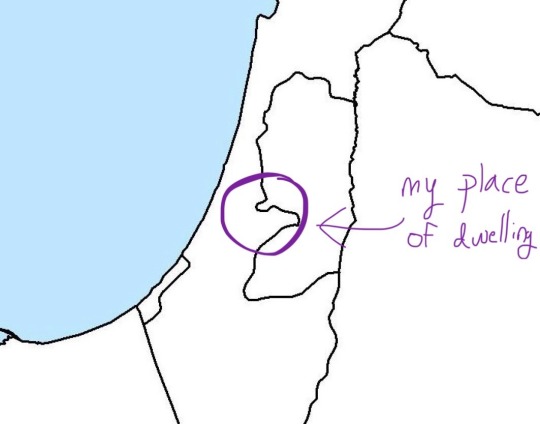
If you know anything about these borders you probably blanched a bit in sympathy, or maybe condolence. But in truth, it’s a shockingly normal existence. I don't feel like I've lived through the shifting of international relations or a war or anything. I just kind of feel like I did when COVID hit, that dull sameness as I wondered if this would be the only world-altering event to shape my life, or if there would be more.
I've been told that, in order for my brain to process all the horrific details of the past six months, there needs to be some element of cognitive dissonance—that falling into a sort of dissociative mindset is the only way to not go insane under the weight of it all. I think in some ways that’s true. I have been terrifyingly close to bus stop shootings when my commute wasn’t over; I have felt my apartment building shake with the reverberations of a missile strike; I have spent hours in underground shelters waiting for air raid sirens to stop.
But. I have also gone grocery shopping, and skipped class, and stayed up too late watching TV, and fed the cats on the street corner, and cried over a boy, and got myself AirPods just because, and taken out the trash, and done laundry on a delicate cycle, and bought overpriced lattes one too many days a week. I have looked at pretty things and taken out my phone because, despite it all, I still think that life is too short not to freeze the small moments.
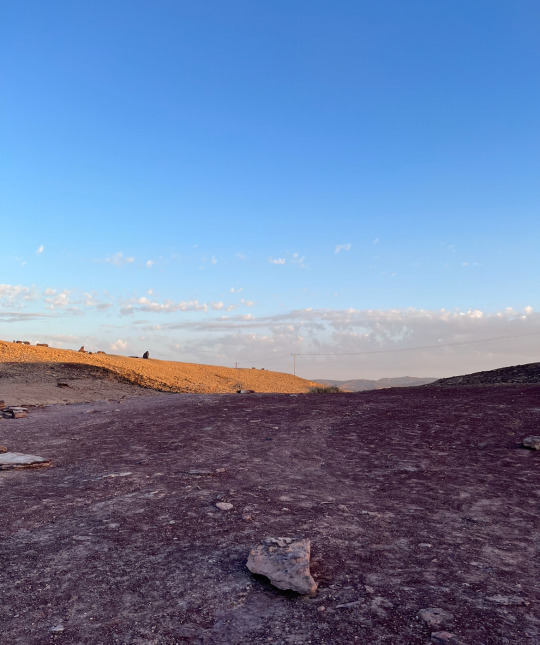
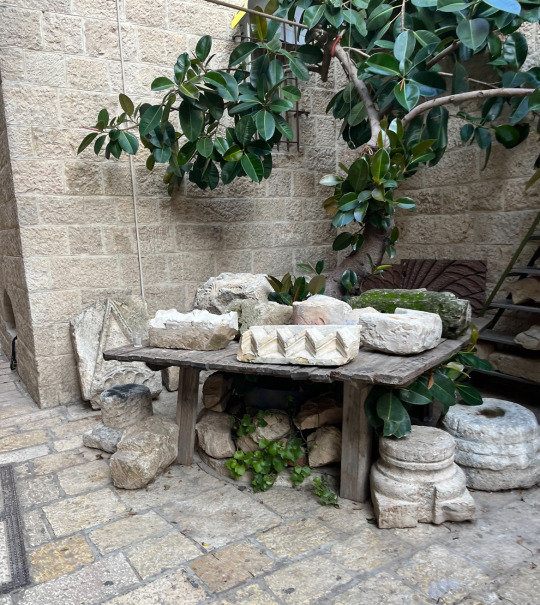
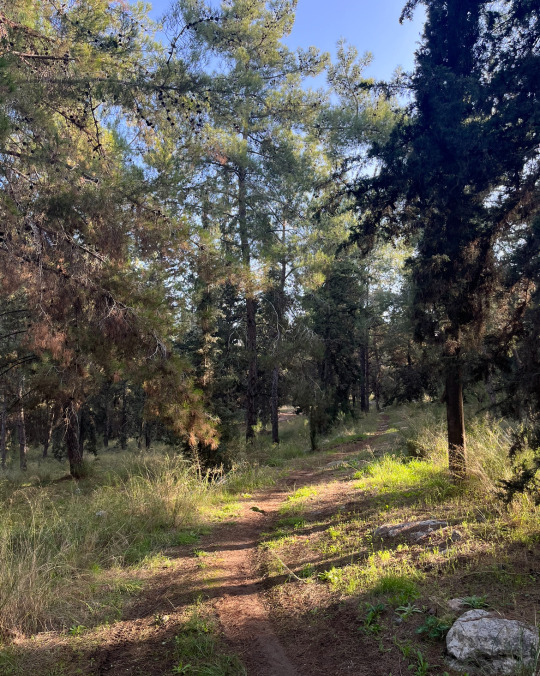
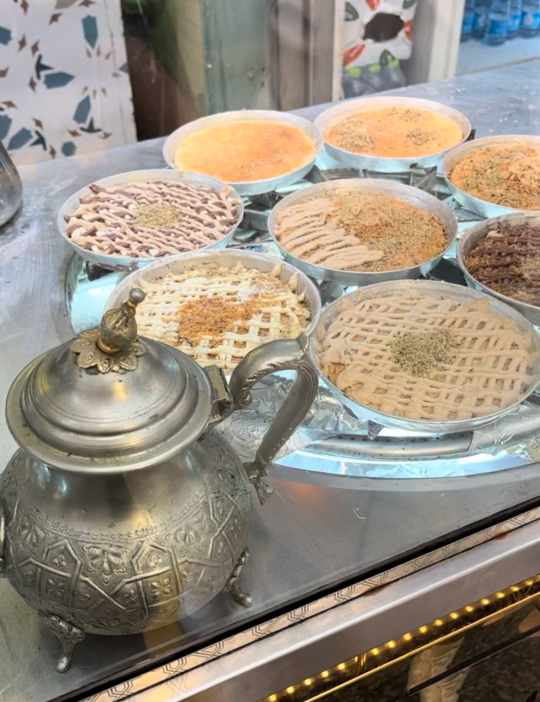
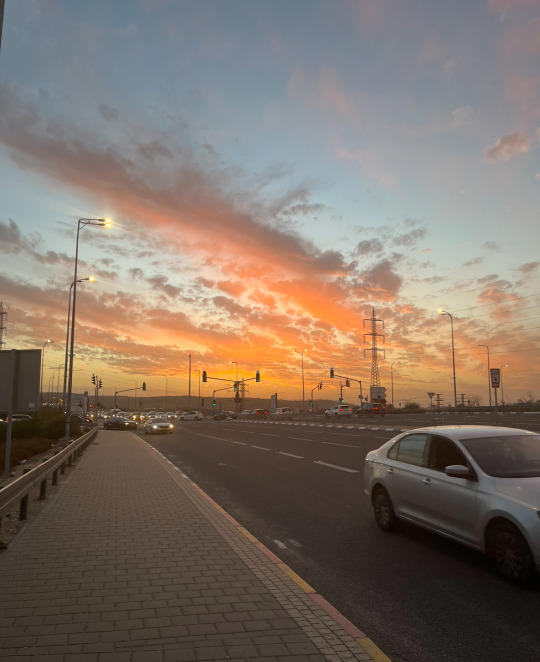
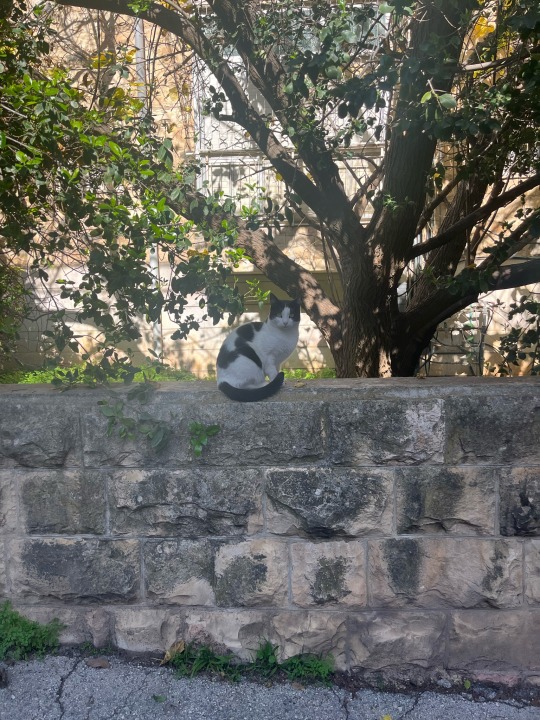
So I'd say, all things considered, I live an incredibly privileged life—compared, of course, to those suffering in Gaza—one filled with sunsets and over-sweetened knafeh and every different color of sand. One that allows me to throw myself into a fandom-induced hyperfixation (or, alternatively, escape method) as I sit on the couch and crack open my laptop to write the next chapter of the fic I'm working on.
But there are bits of not-normalness that wheedle their way through the cracks. I pretend these moments are avoidable, even if they’re not.
They look like this: reading the news and seeing another idiotic, careless choice on Netanyahu’s part and groaning into my morning coffee. Watching Palestinian and Jewish children’s needless suffering posted on Instagram reels and feeling helpless. Opening my Tumblr DMs to find a message telling me to exterminate myself for reblogging a post that only seems like it’s about the war if you squint and tilt your head sideways.
These moments look like all the tiny ways I am reminded that I'm living in a post-October seventh world, where hearing a car backfire makes me jump out of my skin and the sound of a suitcase on pavement makes me look up at the sky and search for the war planes. They look like the heavy grief that is, and also isn’t, mine.
Here's the thing, though. I know you’re wondering when the ball will drop and my true opinion will be revealed. I know you’re waiting for me to reveal what demographic I'm a part of so that you, dear reader, can neatly slap a label on my head and sort me into some oversimplified category that lets you continue to think you understand this war.
No one wants to sit and ruminate on the difficult questions, the ones that make you wonder if maybe you’ve been tinkered with by the propaganda machine, if you might need to go back on what you’ve said or change your mind. We all strive for our perception of complicated issues to be a comfortable one.
But I know that no matter what I do, there will always be assumptions. So, while I shudder to reveal this information online, I think that maybe my most significant contribution to this meta-discussion spanning every facet of the internet is this:
I am a Jew.
Or, alternatively, I am: Jewish, יהודית, يَهُودِيٌّ, etc. Point is, I come from Jews. And, like any given person, I am a product of generation after generation of love.
I'm not going to take time to explain my heritage to you, or to prove that before all the expulsions and pogroms, there was an origin point. If you don’t believe that, perhaps it’s less of a factual problem and more of an ‘I don’t give weight to the beliefs of indigenous people’ problem. But, in case you want to spend time uselessly refuting this tiny point in a larger argument, you can inspect the photos below (it’s just a small chunk of my DNA test results). Alternatively, you can remember that interrogating someone in an attempt to make their indigeneity match your arbitrary criteria is generally not seen as good manners.
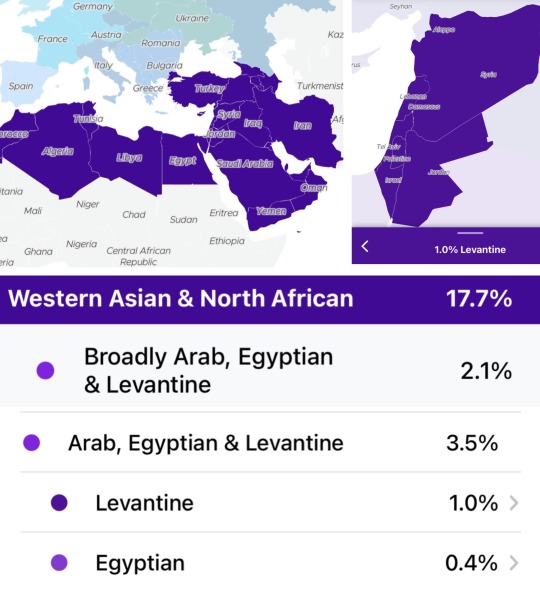
Now, let’s go back to thathateful message (read: poorly disguised death threat) I received in my Tumblr DMs. I think it was like two or three weeks ago. I had recently gained a new follower whose blog’s primary focus was the fandom I contribute to, so I followed them back. I saw in my notes that they were going through my posts and liking them—as one does when gaining a new mutual. Yippee!
Then they sent me this:
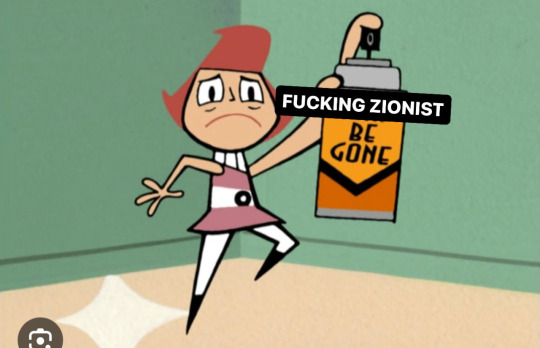
I tried to explain that hate speech is not a way to go about participating in political discourse, but the person had already blocked me immediately after sending that message. Then, assured by the fact that I surely would never see them complaining about me on their blog (because, as I said, they blocked me), they posted a shouting rant accusing me of sympathizing with colonizing settlers and declaring me a “racist Zionist fuck.” Oh, the wonders of incognito tabs.
Where this person drew these conclusions after reading my (reblogged) post about antisemitism…. I'm not actually sure. But I greatly sympathize with them, and hope that they weren’t too personally offended by my desire to not die.
For a while I contemplated this experience in my righteous anger, and tried to figure out a way to message this person. I wanted to explain that a) seeing a post about being Jewish and choosing to harass the creator about Israel is literally the definition of antisemitism and b) that sending a hateful DM and refusing to be held accountable is just childish and immature. But I gave up soon after—because, honestly, I knew it wasn’t worth my effort or energy. And I knew that I wouldn't be able to change their mind.
But I still remember staring at that rather unfortunate meme, accompanied by an all-caps message demanding for me to Free Palestine, and thinking: the post didn’t even have any buzzwords. I remember the swoop of dread and guilt and fear. I remember wondering why this kind of antisemitism felt worse, in that moment, than the kind that leaves bodies in its wake.
I remember thinking, I don’t have the power to free anyone.
I remember thinking, I’m so fucking tired.
And before you tell me that this conflict isn’t about religion—let me ask you some questions. Why is it that Israel is even called Israel? (Here’s why.) Why do Jews even want it? (Here’s why.) But also, if you actually read the charters of Islamist terrorist organizations like ISIS, Hamas, and Hezbollah (among others), they equate the modern state of Israel with the Jewish people, and they use the two entities interchangeably. So of course this conflict is religious. It’s never been anything but that.
But I do wonder, when faced with those who deny this fact: how do I prove, through an endless slew of what-about-isms and victim blaming, that I too am hurting? How do I show that empathy is dialectical, that I can care deeply for Palestinians and Gazans while also grieving my own people?
There's this thing that humans do, when we’re frustrated about politics and need to howl our opinions about it into the void until we feel better. We find like-minded souls, usually our friends and neighbors, and fret about the state of the world to each other until we’ve gone around in a satisfactory amount of circles. But these conversations never truly accomplish anything. They’re just a substitute, a stand-in catharsis, for what we really wish we could do: find someone who embodies the spirit of every Jew-hating internet troll, every ignorant justifier of terrorism, and scream ourselves hoarse at them until we change their mind.
But, of course, minds cannot be changed when they are determined to live in a state of irrational dislike. In Judaism, this way of thinking has a name: שנאת חינם (sinat hinam), or baseless hatred. It's a parasite with no definite cure, and it makes people bend over backwards to justify things like the massacre on October seventh, simply because the blame always needs to be placed on the Jews.
So when a Jew is faced with this unsolvable problem, there is only one response to be had, only one feeling to be felt: anger. And we are angry. Carrying around rage with nowhere to put it is exhausting. It's like a weight at the base of our neck that pushes down on our spine, bending it until we will inevitably snap under the pressure. I’m still waiting to break, even now.
I wish I could explain to someone who needs to hear it that terrorism against Israelis happens every single day here, and that we are never more than one degree of separation away from the brutal slaughter of a friend, lover, parent, sibling. I wish it would be enough to say that the majority of Israelis (which includes Arab-Israeli citizens who have the exact same rights as Jewish-Israelis) wish for peace every day without ever having seen what it looks like.
I wish I could show the world that Israel was founded as a socialist state, that it was built on communal values and born from a cluster of kibbutzim (small farming communities based on collective responsibility), and that what it is now isn’t what its people stand for.
I wish the world could open their eyes to what we Israelis have seen since the beginning: that Hamas is the enemy, Hamas is the one starving Palestinians and denying them aid, Hamas is the one who keeps rejecting ceasefire terms and denying their citizens basic human rights. Hamas is the governing body of Gaza, not Israel. Hamas is responsible for the wellbeing of the Palestinian people. And Hamas are the ones who are more determined to murder Jews—over and over and over again, in the most animalistic ways possible—than to look inwards and see the suffering they’ve inflicted on their own people. I wish it was easier to see that.
But the wishing, the asking how can people be so blind, is never enough. I can never just say, I promise I don't want war.
When I bear witness to this baseless hatred, I think of the victims of October seventh. I think of the women and girls who were raped and then murdered, forever unable to tell their stories. I think of the hostages, trapped underneath Gaza in dark tunnels, wondering if anyone will come for them. I think of Ori Ansbacher, of Ezra Schwartz, of Eyal, Gilad, and Naftali, of Lucy, Rina, and Maia Dee, of the Paley boys, of Ari Fuld and of Nachshon Wachsman. I think of all the innocent blood spilled because of terror-fueled hatred and the virus of antisemitism. I think of all the thousands of people who were brutally murdered in Israel, Jews and Muslims and Christians and humans, who will never see peace.
My ties to this land are knotted a thousand times over. Even when I leave, a part of me is left behind, waiting for me to claim it when I return. But when I see the grit it takes to live through this pain, when I see the suffering that paints the world the color of blood, I look to the heavens and I wonder why.
I ask God: is it worth all this? He doesn't answer. So I am the one, in the end, to answer my own question. I say, it has to be.
Feel free to send any genuine, respectful, and clarifying questions you may have to my inbox!
EDIT: just coming on here to say that I'm really touched & grateful for the love on this post. When I wrote it, I felt hopeless; I logged off of Tumblr for Shabbat, dreading the moment I would turn off my phone to find more hate in my inbox. Granted, I did find some, and responding to it was exhausting, but it wasn’t all hate. I read every kind reblog and comment, and the love was so much louder. Thank you, thank you, thank you. 🤍
Source Reading
The Whispered in Gaza Project by The Center for Peace Communications
Why Jews Cannot Stop Shaking Right Now by Dara Horn
Hamas Kidnapped My Father for Refusing to Be Their Puppet by Ala Mohammed Mushtaha
I Hope Someone Somewhere Is Being Kind to My Boy by Rachel Goldberg
The Struggle for Black Freedom Has Nothing to Do with Israel by Coleman Hughes
Israel Can Defend Itself and Uphold Its Values by The New York Times Editorial Board
There Is a Jewish Hope for Palestinian Liberation. It Must Survive by Peter Beinart
The Long Wait of the Hostages’ Families by Ruth Margalit
“By Any Means Necessary”: Hamas, Iran, and the Left by Armin Navabi
When People Tell You Who They Are, Believe Them by Bari Weiss
Hunger in Gaza: Blame Hamas, Not Israel by Yvette Miller
Benjamin Netanyahu Is Israel’s Worst Prime Minister Ever by Anshel Pfeffer
What Palestinians Really Think of Hamas by Amaney A. Jamal and Michael Robbins
The Decolonization Narrative Is Dangerous and False by Simon Sebag Montefiore
Understanding Hamas’s Genocidal Ideology by Bruce Hoffman
The Wisdom of Hamas by Matti Friedman
How the UN Discriminates Against Israel by Dina Rovner
This Muslim Israeli Woman Is the Future of the Middle East by The Free Press
Why Are Feminists Silent on Rape and Murder? by Bari Weiss
#palestine#israel hamas war#israel hamas conflict#hamas#on war#essay writing#personal essay#rant post#stop terrorism#israel#writing#palestinian lives matter#jewish lives matter#jewish and proud#jewish identity#jewish muslim solidarity#on grief#on religion#antisemitism#anti zionisim#purim 2024#chag purim sameach#judaism#israeli palestinian conflict#am yisrael chai#kvetching#jumblr#mims on middle east#המצב
514 notes
·
View notes
Text
jesus would be absolutely horrified at what’s happening in gaza right now
#and anyone who says otherwise needs to take a big step back#palestine#israel#hamas#gaza#west bank#free gaza#free palestine#free west bank#israel hamas war#christianity#religion#god
696 notes
·
View notes
Text
I lived in a narrowly pre-apocalyptic America that existed in a state of Cold War-type political tension, and Roman Catholic nuns were held in general suspicion of involvement with Soviet conspiracies.
#dream#text#April 13th 2024#apocalypse tw#pre apocalyptic#america#cold war#war tw#politics#religion#roman catholic#nun#soviet#conspiracy#conspiracy theory
293 notes
·
View notes
Text
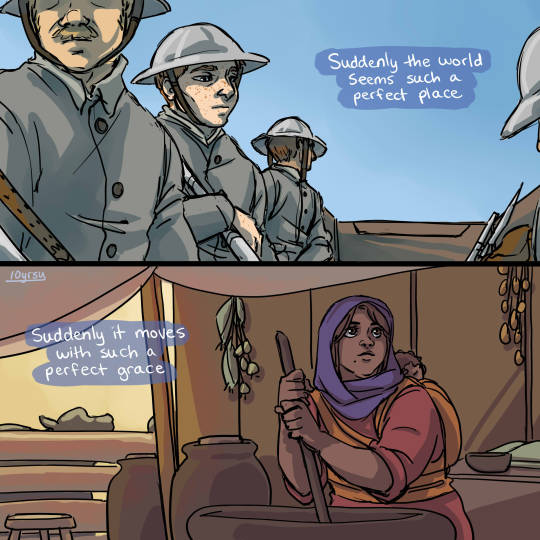
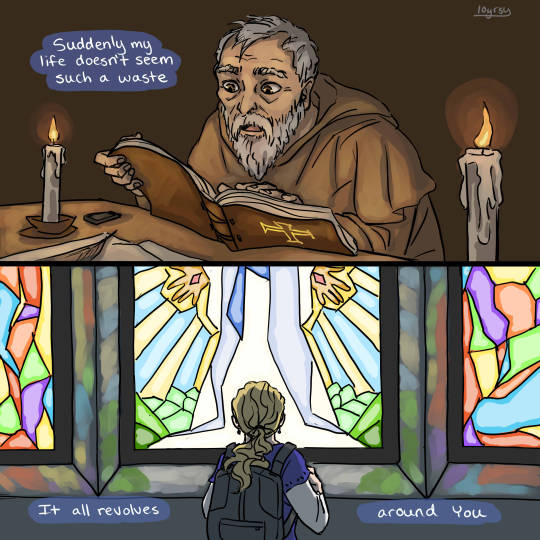
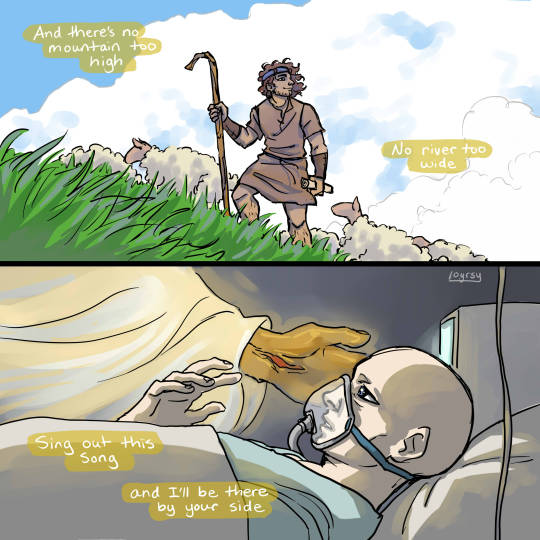
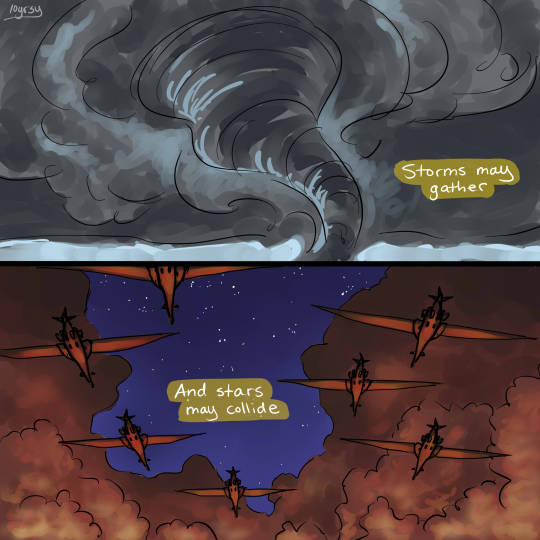
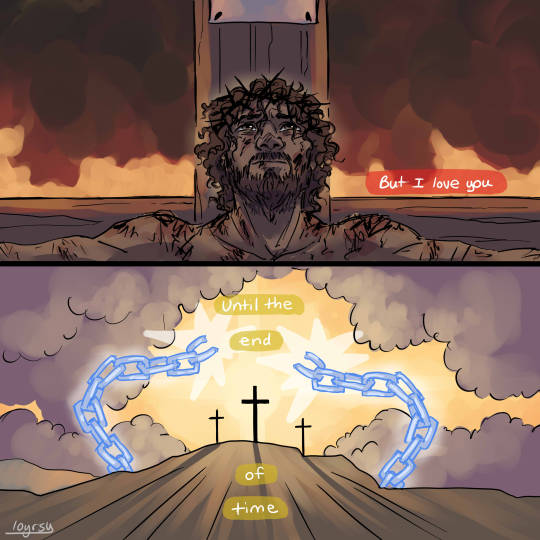
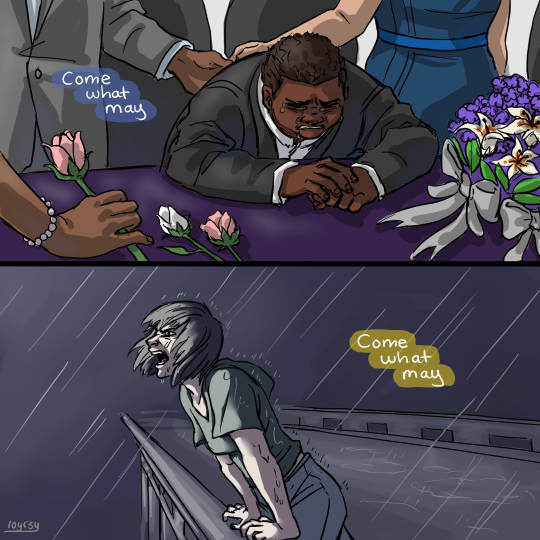
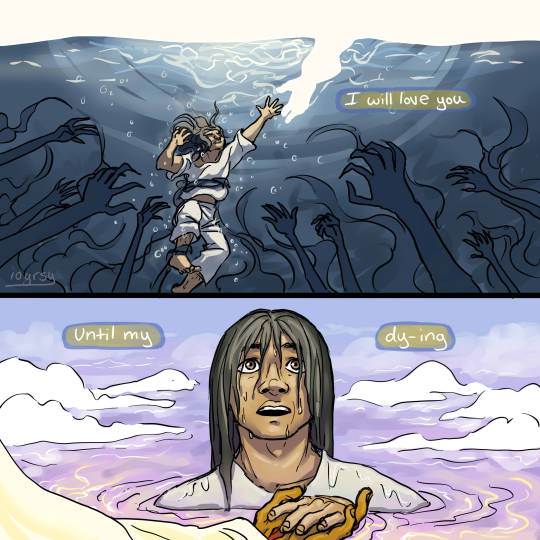
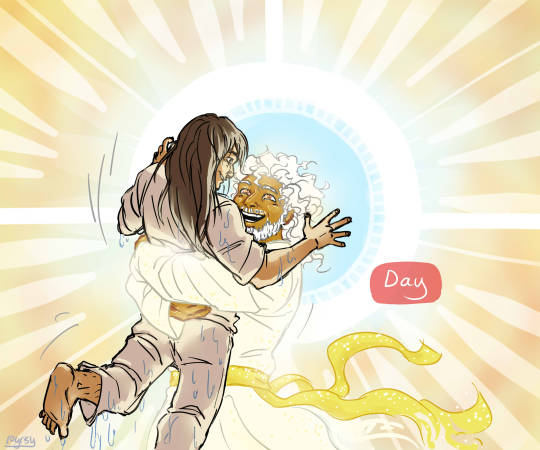
"Can anything separate us from Christ's love? Does it mean He no longer loves us if we have trouble or calamity, or are persecuted, or hungry, or destitute, or in danger, or threatened with death? (-) No, despite all these things, overwhelming victory is ours through Christ, who loves us.
And I am convinced that nothing can ever separate us from God's love. Neither death nor life, neither angels nor demons, neither our fears for today nor our fears about tomorrow- not even the powers of hell can separate us from God's love. No power in the sky above or in the earth below- indeed, nothing in all creation will ever be able to separate us from the love of God that is revealed in Christ Jesus our Lord." -Romans 8:35,37-39
youtube
transcript:
Suddenly the world seems such a perfect place
Suddenly it moves with such a perfect grace
Suddenly my life doesn't seem such a waste
It all revolves around you
And there's no mountain too high
No river too wide
Sing out this song and I'll be there by your side
Storm clouds may gather
And stars may collide
But I love you
Until the end of time
Come what may
Come what may
I will love you
Until my dying day
#christianity#jesus christ#God#religion#religious art#faithstuff#faith#salvation#bible scripture#bible verse#heaven#war#hospitals#funeral#art inspired by music#song comic#long post.#my art#moulin rouge 2001#digital comic#Youtube
629 notes
·
View notes
Text
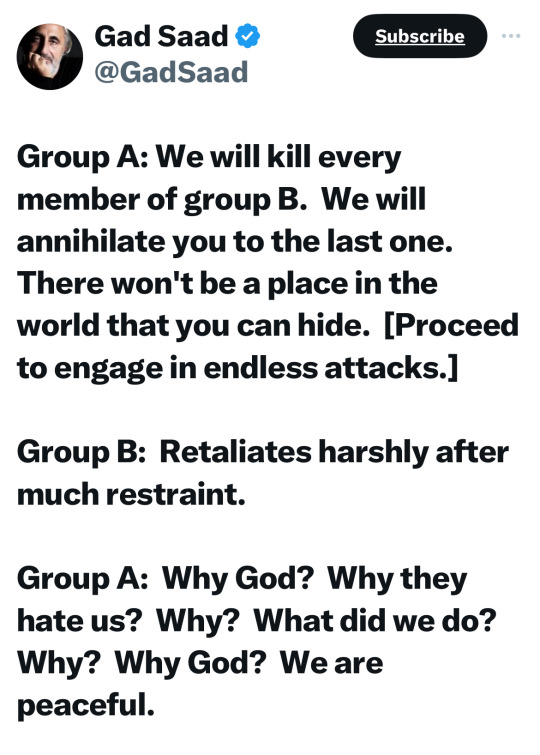
I truly adore Gad Saad.
#israel#secular-jew#jewish#judaism#israeli#jerusalem#diaspora#secular jew#secularjew#islam#indigenous#indigeneity#gad saad#antisemitism#Hamas#Gaza#Gazans#never forget#never again#no ceasefire#israel hamas war#hamas massacre#al shabab#Al asqa brigades#hezbollah#Taliban#Isis#hamas is isis#the religion of peace#the religion of pieces
374 notes
·
View notes
Text

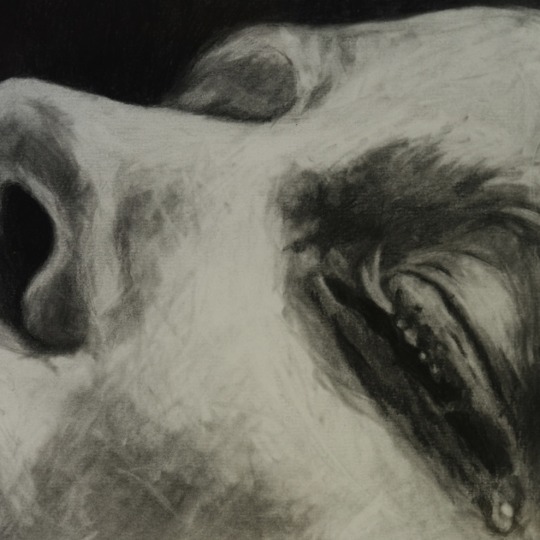
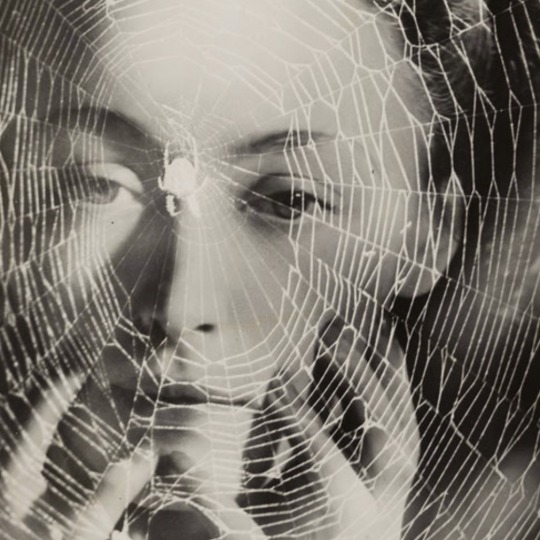

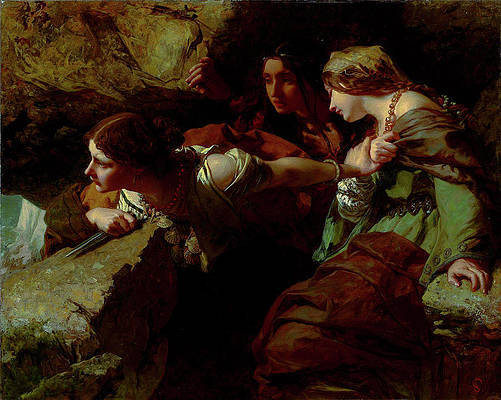

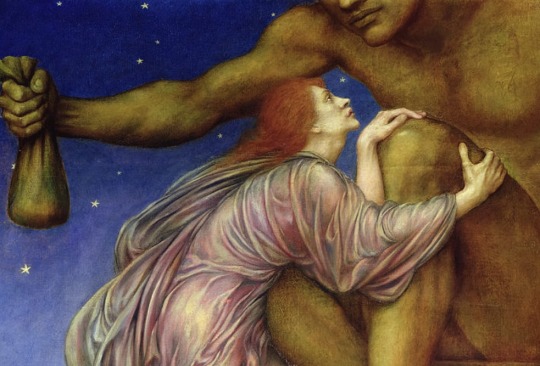


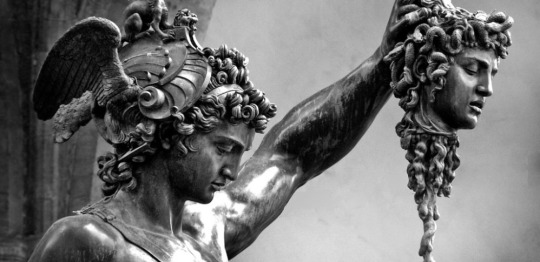

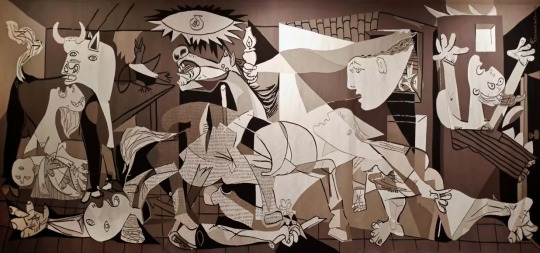
credits ⍣ ೋ
all quotes are from poisoned reverence by rose alouette nightingale
artwork: crocodile tears 3 by natalie dowse, the years lie in wait for you by dora maar, courage anxiety and despair by james sant, worship of mammon by evelyn de morgan, perseus with the head of medusa by benvenuto cellini, guernica by pablo picasso
#web weaving#writeblr#artblr#writing#literature#grief#religion#war#web weaving aesthetic#aesthetic#lgbtq#lgbtq tumblr#reading#picasso#book recs#book recommendations
320 notes
·
View notes
Text
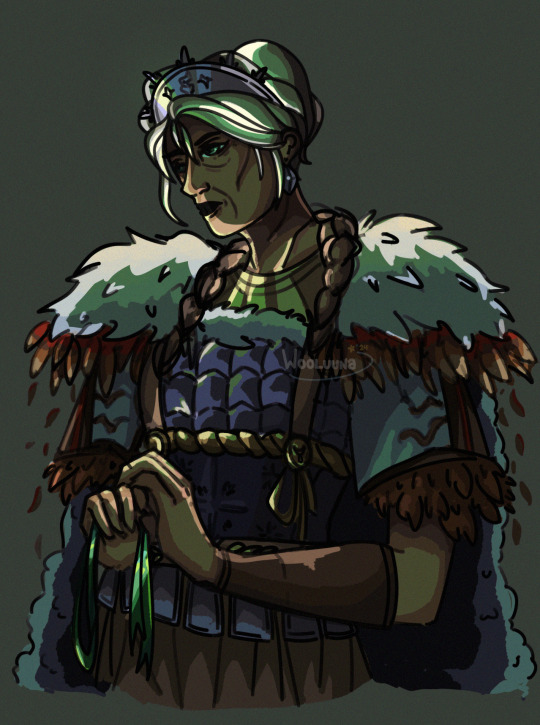
"i'll not lose her again... i shall freeze hell in it's entirety if that is what it takes to get her back"
#hades game#hades supergiant#hades 2#demeter#i lovee how this actually references different epithets she bears in actual greek religion; similar to aphrodite's redesign with her spear#idk why i went so feral for her the moment i saw her redesign#but WAR MOTHER HELLO#wooluunaart#not me going back on my hades art shenanigans
208 notes
·
View notes
Photo
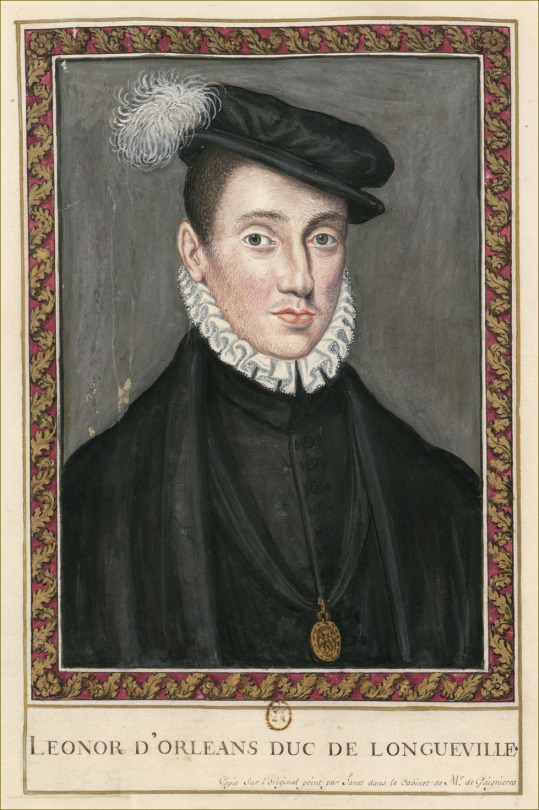
Léonor d'Orléans (1540–1573) was the son of François, marquis of Rothelin, and Jacqueline de Rohan, Marquise de Rothelin. He was the grandson of Louis I d'Orléans, duc de Longueville and he succeeded his first cousin, François III d'Orléans as duc de Longueville.
He was duc de Longueville, prince of Châtellaillon, marquis of Rothelin, count of Montgommery and of Tancarville, visount of Abberville, Melun, count of Neufchâtel and of Valangin, was governor of Picardy and Normandy and one of the military leaders of the French Wars of Religion.
#royaume de france#maison de valois#maison d'orléans#orléans longueville#léonor d'orléans#duc de longueville#wars of religion
9 notes
·
View notes
Text
Provincial networks
Distributing patronage to secure political loyalty is a classic technique of governing: Henri IV had used this technique to pacify France after the Wars of Religion and the League. No royal minister before Richelieu, however, had ever recruited so many provincial administrative clients, especially in frontier provinces, carefully placed them in key institutions, and retained them over a long period of time. The recruitment and retention of provincial broker-clients by Cardinal Richelieu was a deliberate ministerial policy meant to establish royal control over the peripheral regions of France, and it contributed significantly to the development of the early modern state. The intendants whom Richelieu sent as permanent residents into the provinces were used for this purpose, too, and in many cases they were also his clients. Cardinal Richelieu broke new ground in creating and using ministerial clienteles to govern distant provinces directly, an administrative change that increased the integration and centralization of the early modern French state.
Cardinal Mazarin inherited Richelieu's position as chief minister but allowed his predecessor's client networks in the provinces to lapse as he created his own administrative network. However, when the Fronde erupted, Mazarin found himself forced to reestablish provincial networks of broker-clients, because he could not use the intendants whom the rebels forced him to recall. The civil war of the Fronde (1648-1653) occured in two stages. The first or judicial Fronde was a rebellion by the sovereign judicial courts of Paris, Aix, Bordeaux and Rouen. One of their demands was the recall of provincial intendants and Mazarin was forced to comply, although he restored them as soon as he could after the Fronde. The second or noble Fronde was a rebellion by great nobles who were provincial governors and their noble clients. They were able to force Cardinal Mazarin into temporary exile in Germany. Through the distribution of royal patronage and the tactic of divide-and-rule, however, Mazarin was able to return to Paris, reassert control over the great nobles and the royal government, and end the Fronde. His provincial networks of broker-clients, many of whom were inherited from Richelieu, helped him to reestablish control over the French provinces.
Sharon Kettering- Patrons, Brokers and Clients in Seventeenth Century France
#xvii#sharon kettering#patrons brokers and clients in seventeenth century france#henri iv#wars of religion#cardinal de richelieu#cardinal mazarin#la fronde#networks
2 notes
·
View notes